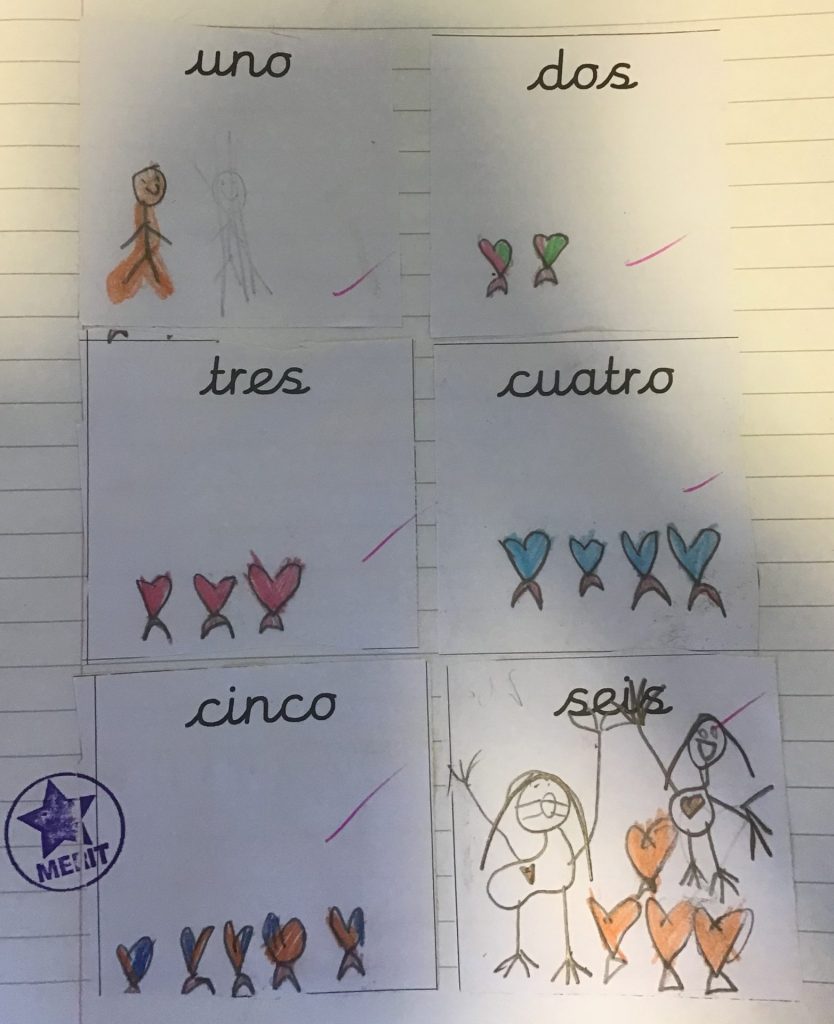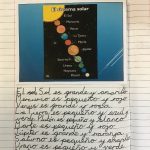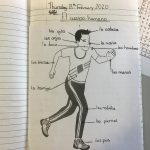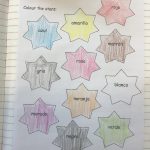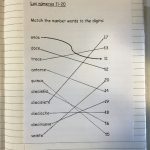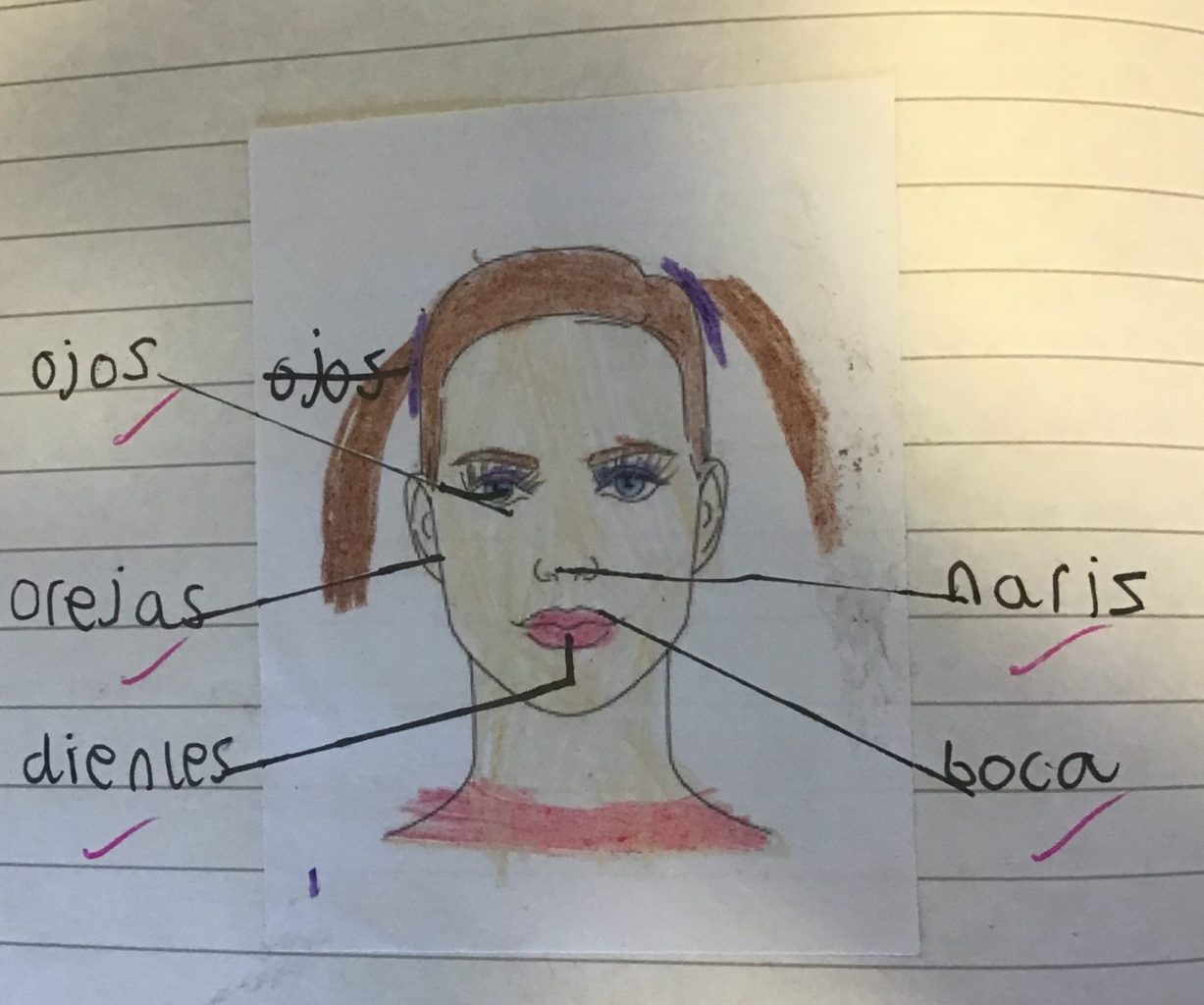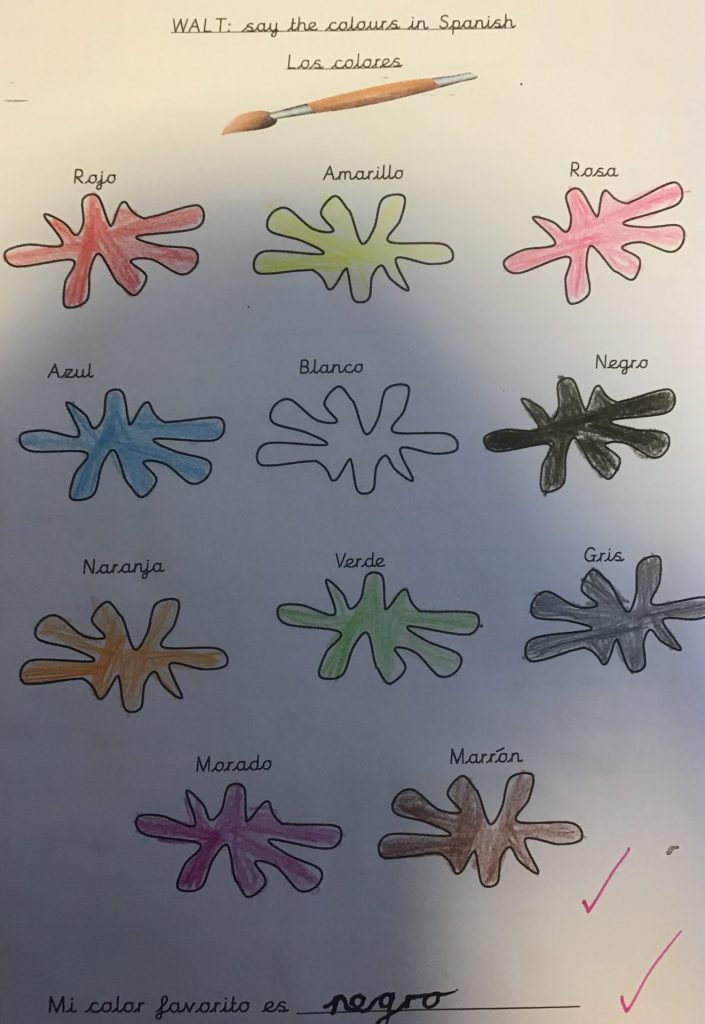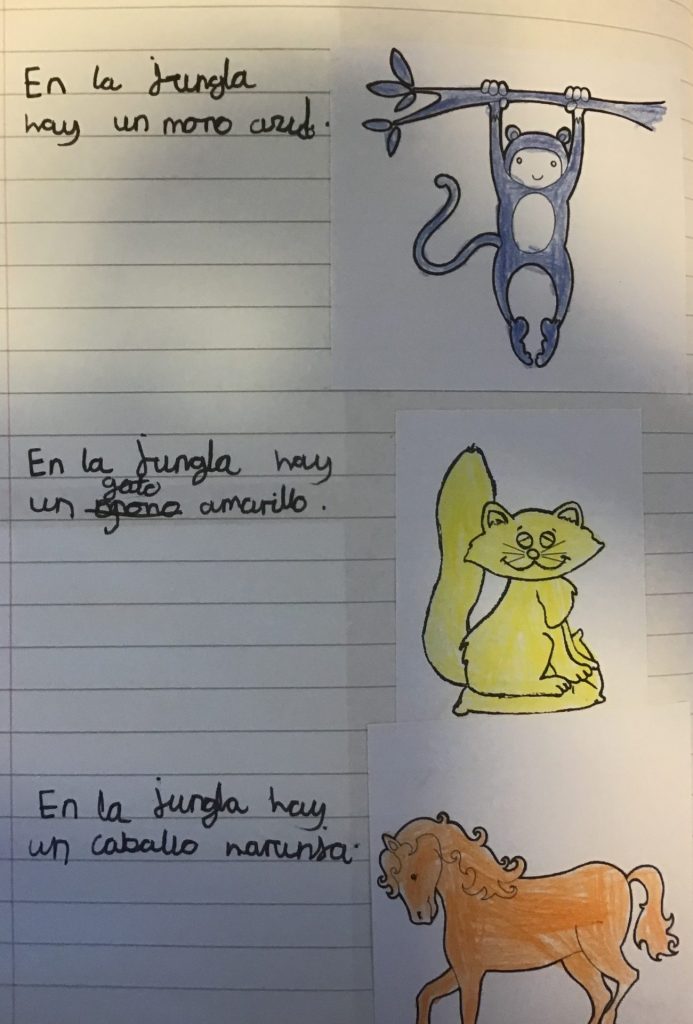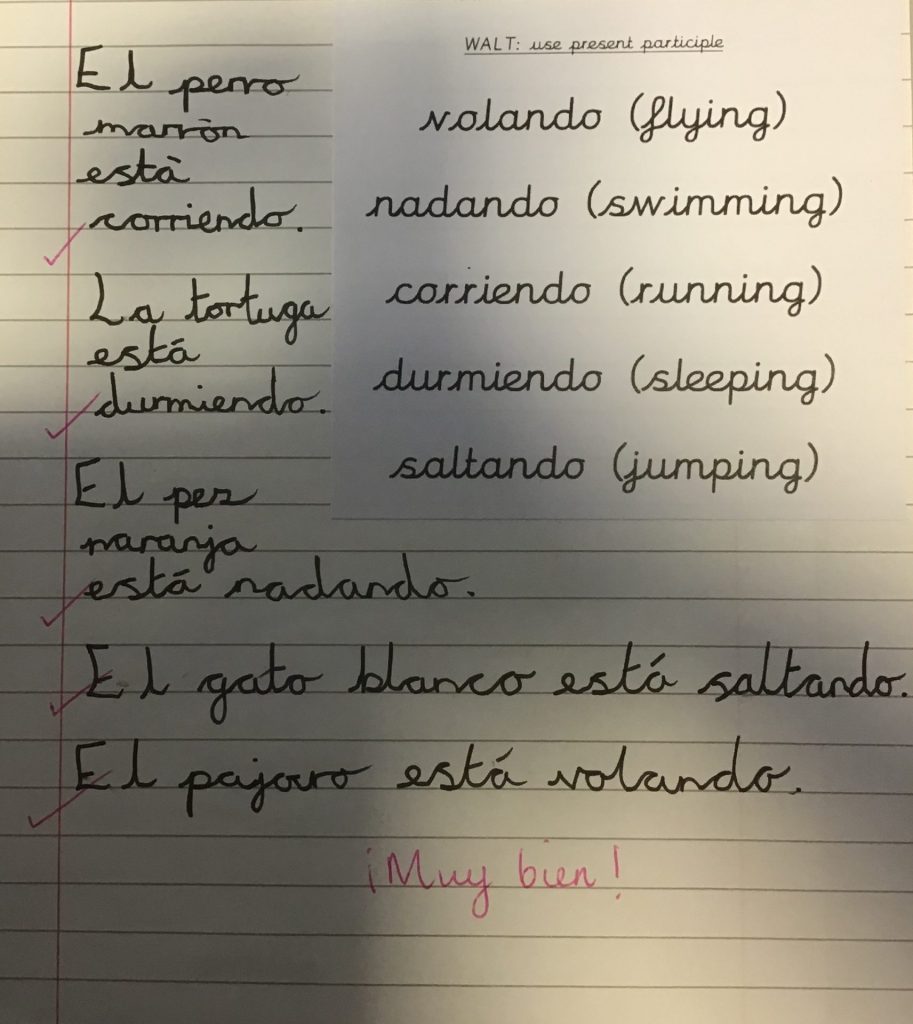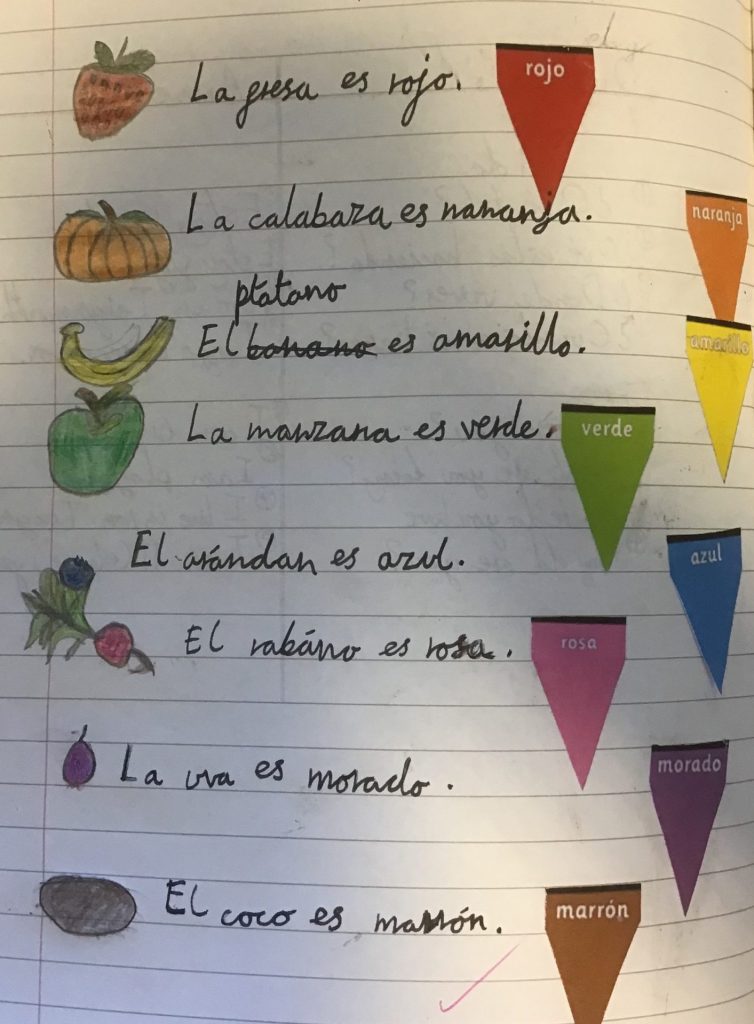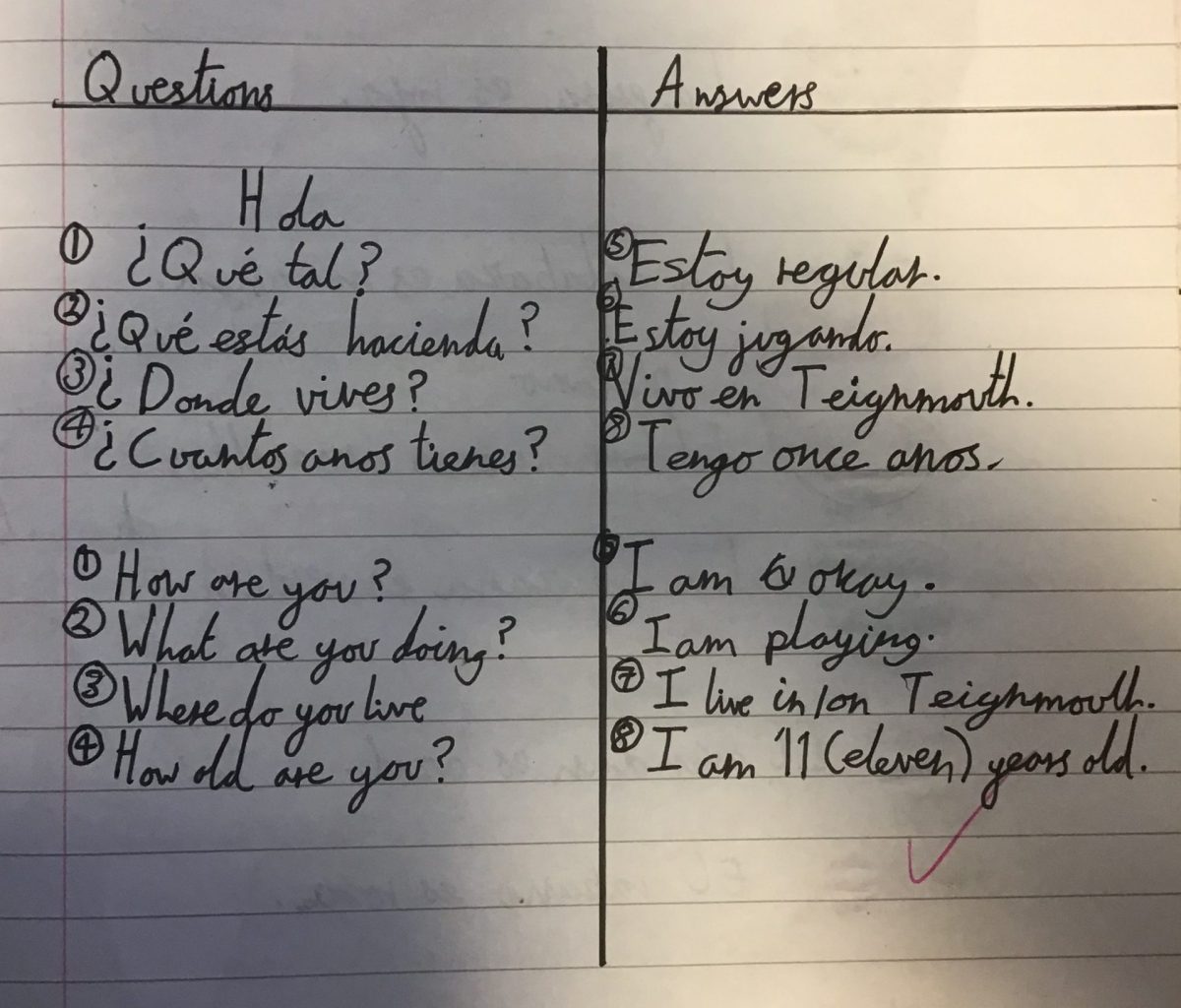Our aim is to develop the confidence and competence of each child learning Spanish. Children will be passionate, curious and confident ready for when they finish the primary school phase of their education. We will develop and demonstrate substantial progress in the 5 key language skills necessary for learning Spanish:
• Speaking
• Listening
• Reading
• Writing
• Grammar
We will ensure that pupils of all abilities develop solid foundations in these key language learning skills – properly preparing them for the next stage of their language learning journey. These skills will develop children’s ability to understand what they hear and read and enable them to express themselves in speech and writing. We will extend their knowledge of how language works and explore the similarities and differences between the foreign language they are learning (Spanish) and English. We will also help strengthen their sense of identity through learning about culture in other countries and comparing it with their own. Lessons are taught well to ensure they motivate and captivate the interest of all children from the first moment and continue to develop a love and passion for language.
All Pupils will:
• Understand and respond to spoken and written language from a variety of authentic sources;
• Speak with increasing confidence, fluency and spontaneity, finding ways of communicating what they want to say, including through discussion and asking questions, and continually improving the accuracy of their pronunciation and intonation;
• Write at varying length, for different purposes and audiences, using the variety of grammatical structures that they have learnt;
• Discover and develop an appreciation of a range of authentic writing in the language studied.
By the end of key stage 2, pupils should be able to:
• Listen attentively to spoken language and show understanding by joining in and responding;
• Explore the patterns and sounds of language through songs and rhymes and link the spelling, sound and meaning of words;
• Engage in conversations; ask and answer questions; express opinions and respond to those of others; seek clarification and help;
• Speak in sentences, using familiar vocabulary, phrases and basic language structures;
• Develop accurate pronunciation and intonation so that others understand when they are reading aloud or using familiar words and phrases;
• Present ideas and information orally to a range of audiences;
• Read carefully and show understanding of words, phrases and simple writing;
• Appreciate stories, songs, poems and rhymes in the language;
• Broaden their vocabulary and develop their ability to understand new words that are introduced into familiar written material, including through using a dictionary;
• Write phrases from memory, and adapt these to create new sentences, to express ideas clearly;
• Describe people, places, things and actions orally and in writing;
• Understand basic grammar appropriate to the language being studied, including (where relevant): feminine, masculine and neuter forms and the conjugation of high-frequency verbs; key features and patterns of the language; how to apply these, for instance, to build sentences; and how these differ from or are similar to English.
Look at some of our superb Spanish learning so far this year!
Learning vocabulary:
Building sentences:
Asking and responding to questions:


